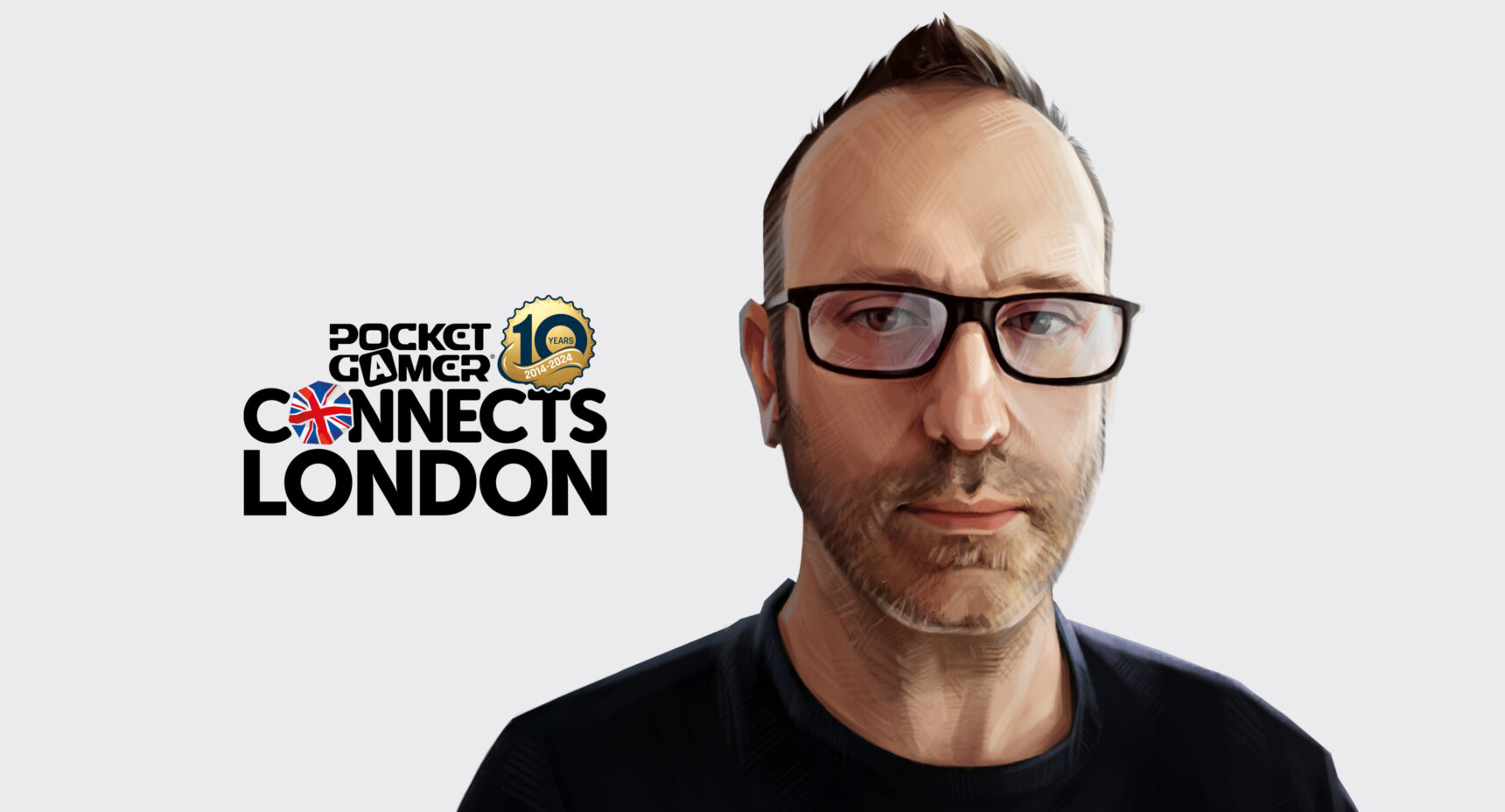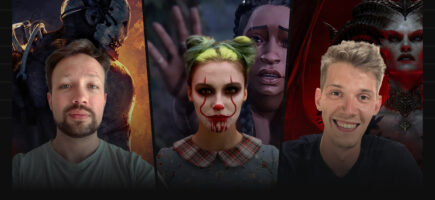“Let’s stop limiting ourselves to specific types of games based on the platform” – Matthew Zoern, Head of Studio at Solid Bash (by Room 8 Group)

The most popular articles
In anticipation of Pocket Gamer Connect London 2024, Matthew Zoern, Head of Studio at Solid Bash (by Room 8 Group), delves into the dynamic and ever-evolving world of game development. From his journey into the realm of mobile games to his insights on the future of hyper-casual gaming, we talk about the significance of diversity in game design, the importance of adapting to market needs, and the potential of platform-agnostic development.
What aspects of the mobile games industry were most appealing and drew your interest?
The thing that drew me in was the unique and diverse background of its people. Unlike those who transitioned from console gaming, my path to mobile was quite different. My journey began with work in various fields like the internet, music companies, and advertising agencies. This meant I had a fresh perspective on game development.
Mobile gaming evolved in a fascinating way, attracting professionals from all kinds of sectors, not just those with traditional gaming backgrounds. This diversity led to innovative and creative approaches to game design. It was about individuals wanting to create something cool and unique, leading to the success of many early mobile games.
This new approach also brought skepticism from the traditional games industry. Some thought mobile games weren’t ‘real’ games. However, I believe that games are defined by their players. If people play and enjoy a game, it’s as legitimate as any other form. Mobile gaming showed that gaming could be accessible, diverse, and innovative. It’s this aspect of creativity and accessibility that really appealed to me and made me excited to be a part of this evolving industry.
What are some of the most frequently encountered opportunities for improvement in the games sector?
A valuable opportunity I’ve observed is the potential for greater investment in understanding the market. It’s easy to fall in love with our own game ideas, especially in smaller or mid-sized companies, and assume that if we’re passionate about it, the market will be, too. However, what’s crucial is aligning our projects with what the market actually needs and wants.
Big companies often have the resources to keep their finger on the pulse of market trends, but it’s equally important for startups and indie developers. It’s not just about making a game you’d love to play; it’s about creating something that meets a real demand. Remember, the market is always evolving. What’s hot today might not be in a year, so it’s essential to look ahead and adapt accordingly.
In essence, the key is to balance your passion with practicality. Sure, start with an idea you’re excited about, but also do your homework. Keep up with trends, understand your audience, and be ready to pivot if needed. This approach helps ensure that your game remains relevant and has a better chance of success in the ever-changing games landscape.
What is the most significant opportunity for growth and innovation facing game developers today?
The most exciting opportunity in today’s games world lies in adopting a platform-agnostic approach. The industry is undergoing a transformative shift, blurring the lines between various gaming platforms and opening new avenues for game development and player experience.
Many developers in the industry still operate in segregated silos, focusing on one platform over another. However, the need of the hour is to stop limiting ourselves to specific types of games based on the platform. The challenge lies in embracing the full spectrum of gaming platforms — from mobile to console to PC — and creating games that can transition seamlessly across them.
It’s about breaking down the barriers and avoiding the mindset of, ‘these are the types of games I make for this particular platform’. Instead, we should be asking, ‘how can our games provide a rich and engaging experience across all platforms?’ This approach will not only enhance the gaming experience for players but will also open up new creative and business-related opportunities for developers. Embracing this change is the key challenge facing game-makers today.
Which game created by a different company do you admire and would have loved to contribute to?
That’s a really interesting question, as there’s a bit of a paradox when it comes to games I adore. On one hand, it would be amazing to say I’ve worked on some of my favorite games. But on the other hand, being part of the development process might take away some of the magic and mystery that makes playing them so enjoyable. Part of the fun in gaming is discovering all the nuances and secrets as a player, which I might miss out on if I’m involved in the creation.
However, if I had to choose, there are two games that come to mind. The first would be Sid Meier’s Civilization series. These games have such a rich and engaging strategy element, and the opportunity to contribute to such a legendary title would be incredible. The second would be EVE Online, known for its complex and player-driven universe. The depth and scale of EVE Online is truly astounding, and being a part of creating that immersive world would be a remarkable experience.
Both of these games have had a significant impact on the games industry and have been sources of inspiration for me. While I cherish my role as a player, the thought of contributing to such groundbreaking titles is certainly a fascinating one.
Will hyper-casual gaming continue to be a prominent trend in the future?
Hyper-casual gaming, in my view, is definitely here to stay, but it’s evolving. We’re seeing this genre expand and become more complex than it used to be. Initially, hyper-casual games were all about quick, easily digestible experiences, akin to snackable content. They needed to make their mark and profit in a very short span of time, often relying heavily on ads.
However, the trend is shifting. These games are becoming more involved, offering a slightly deeper experience while maintaining that ‘hyper-casual’ essence. This evolution doesn’t mean that hyper-casual games are losing their identity; rather, they’re adapting to player preferences and market demands.
The appeal of hyper-casual games varies from person to person. What’s fun for one player might not be for another, and that’s the beauty of it. There’s room for all kinds of games in the market, and hyper-casual games have carved out their niche effectively. It’s about understanding what players need and delivering that experience.
Interestingly, if you think about it, hyper-casual games aren’t drastically different from classic games like ‘Centipede’. Back in the day, these games were also about straightforward, focused gameplay — you play, you reach a high score, and then you start over. In many ways, hyper-casual games are a modern iteration of this classic gaming formula, adapted for today’s fast-paced lifestyle. So yes, I firmly believe that hyper-casual gaming is here to stay, evolving and adapting to the changing tastes of gamers.
What are your favorite activities outside of work to ground yourself and recharge the batteries?
I often turn to activities that are different from my work in the digital realm of video games. One of my favorite ways to decompress is what I like to describe as ‘survival camping’, though that might sound a bit extreme. It’s about getting back to basics, living off the land, and reconnecting with skills that many of us have lost touch with in our modern lives.
This kind of activity is a way for me to connect with the tangible world in a very real way. Working in video games, we’re deeply immersed in a digital, intangible space. If, hypothetically, we returned to a pre-electricity era, it would be fascinating yet challenging to explain our current jobs to someone a decade from now.
That’s why engaging in something physical and real, like survival camping, is so important to me. It’s a reminder of our connection to the physical world, a world that we sometimes forget in the face of screens and virtual spaces. There’s something incredibly fulfilling about interacting with nature, using your hands, and learning to thrive in an environment that’s completely different from the digital world many of us work in. This reconnection with the physical world brings me a sense of peace and balance.
What elements do you consider essential at events and what aspects do you enjoy the most?
I’d be excited to see events placing a greater emphasis on deep, impactful discussions about the ongoing evolution of the industry. It’s important to balance the need for promoting games and companies with the opportunity to engage in meaningful dialogues about the real transformations and hurdles facing the games industry.
I would like to see open, honest conversations where different viewpoints are shared and debated. This kind of dialogue can foster a deeper understanding of where the industry is headed, the challenges we face, and innovative solutions to them. It’s in these discussions, where opinions clash and converge, that real learning can occur.
Join us at Pocket Gamer Connect London 2024 to collaborate and create amazing games. Discover more about Room 8 Group’s involvement and follow us on social media for the latest updates.




